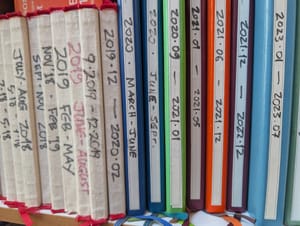
This is a hell of an obit about a man who must have been a hell of a writer. Not being a sports fan, I hadn’t heard about Bud Shrake until I read this, and now I’m sorry I missed him.
I’m pretty sure they aren’t making journalists like this any more.
Sally Jenkins – Shrake ‘Did Everything He Wanted to, and Nothing He Didn’t’ – washingtonpost.com.
The last thing the great sportswriter and author Bud Shrake ever said to me was, “Remember to look left.” … What he really meant was, don’t forget to check the periphery. It was Bud’s style to capture large meanings in simple sentences, which was why he could write anything from a hilarious headline to serious award-winning work about Muhammad Ali, to the best-selling sports book of all time, on golf, “Harvey Penick’s Little Red Book.” Bud always checked the periphery, which was where he found his best stories.
…
Blackie [Sherrod, sports editor at the Fort Worth Press] would hand them stories by John Lardner, S.J. Perelman, and James Thurber, and encourage them to experiment. This begat attempts to entertain each other, with results such as the following, written by Bud about a high school track meet and over which they keened with laughter for years: “This is no golden legend, this is the plain unvarnished tale of youth.”
…
His approach toward writing came partly from Bundini Brown, Muhammad Ali’s assistant cornerman, and an amateur philosopher. It was Bundini Brown who would get Ali mentally ready to fight, and who came up with “float like a butterfly, sting like a bee; the hands can’t hit what the eyes can’t see.”
Bundini Brown told Bud that only 15 percent of the world was visible, the remaining 85 percent was dark matter and energy, and contained in that matter was “all the knowledge of all the stories that ever happened.” The molecules of words were just floating out there, captured in the ether, and if you attuned your mind properly, the words would just flow into you. Bud believed that, but he also believed what Harvey Penick said to him: “Life consists of a lot of minor annoyances and a few matters of real consequence.”
Bud took other writing advice from Mark Twain, who said, “The difference between the right word and almost the right word is the difference between the lightning and the lightning-bug.” And from Rudyard Kipling, who insisted that to write meant being patiently ruled by the subconscious: “You wait, you listen, you obey.”


